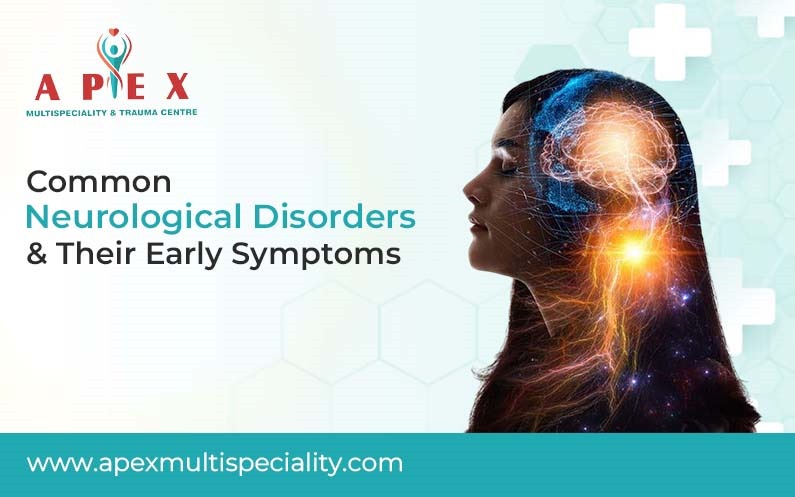Neurological disorders never appear overnight. Your nervous system often whispers warnings that go unnoticed. However, detecting the early symptoms is a crucial step for defence. So, how will you identify those red flags and start proper treatments? Check the list of common neurological diseases and their early symptoms. If you experience those issues, consult a neurologist without delay.
Epilepsy and Seizures
Epilepsy is a seizure disorder that causes recurrent seizures. However, the cause of this disease may or may not be known in every case.
Seizure symptoms vary widely, but the most common ones are:
- A staring spell
- Temporary confusion
- Stiff muscles
- Jerking movements of legs and arms
- Unconsciousness
- Psychological issues like anxiety and fear
Early treatment and effective medication will prevent long-term complications like brain damage.
Parkinson’s Disease
People aged around 60 have a risk of a progressive nerve disorder, known as Parkinson’s disease. Muscle stiffness is a common early sign indicating a nerve disease. You will find it difficult to move your arms when walking. Your face may also become stiff due to Parkinson’s disease.
Moreover, people with Parkinson’s disease lose their sense of smell. Other signs include slurred speech, occasional tremors, and constipation. However, advanced Parkinson’s disease may affect your mental behaviour. In such a situation, you need to consult a psychiatrist to control the psychological symptoms.
Amyotrophic Lateral Sclerosis
ALS (also referred to as Lou Gehrig’s disease) is a neuromuscular disease that affects nerve cells in your spinal cord and brain. Sometimes, environmental factors and genetics cause this disorder. Some early signs of ALS are-
- Stiff muscles
- Weakness
- Twitching
- Difficulty swallowing and breathing
- Slurred speech
However, it is challenging to diagnose the disease without consulting a neuromuscular expert. ALS is a chronic disease that has no cure.
Migraine Headaches
Most people assume that only stress causes headaches. However, underlying neurological issues can lead to the same symptoms. If you experience recurrent episodes of migraine, contact a neurologist for diagnosis.
Migraines can cause head pain and affect other body parts. Abnormal brain activity, affecting blood flow, indicates migraine attacks. Moreover, as migraines release some chemicals, your brain’s blood vessels get inflamed. That is why you feel pain repeatedly.
Multiple Sclerosis
Multiple sclerosis is an autoimmune disease affecting the central nervous system. Vision problem (eye movement issue) is the early sign of this disorder. You may also feel tired without any obvious cause. Moreover, nerve damages lead to tingling sensations and numbness. There is a risk of balance issues if you have multiple sclerosis.
Your lifestyle and environmental factors are responsible for multiple sclerosis. So, let your neurologist know about your symptoms and diagnose the disease.
Alzheimer’s and Dementia
Alzheimer’s and dementia are nerve disorders that cause memory loss. It may prevent you from doing your daily tasks properly. You will also have trouble reading and difficulty with balance. Mood fluctuations and personality issues are also common in people with dementia.
Remember that several other conditions cause dementia-like symptoms. For instance, depression and strokes may lead to the same symptoms. So, you must not take medications until the disease is diagnosed in a clinic.
The neurologist will ask you about your family medical history and your current medical issues. A physical examination is also essential to test your organs and senses.
Restore Your Neurological Health Today
Neurological conditions can deeply affect your daily life if not addressed at the right time. Identifying early warning signs and consulting a qualified specialist can make a significant difference in treatment outcomes. At Apex Multispeciality Hospital, our team of experienced neurologists in Bharuch provides advanced diagnostic care and personalized treatment plans for a wide range of neurological disorders. With the support of multidisciplinary experts, including psychiatrists and rehabilitation specialists, we provide holistic care to support both your health and well-being.
Don’t ignore the symptoms—schedule your consultation today and take the first step toward restoring your neurological health with trusted experts in Bharuch.



